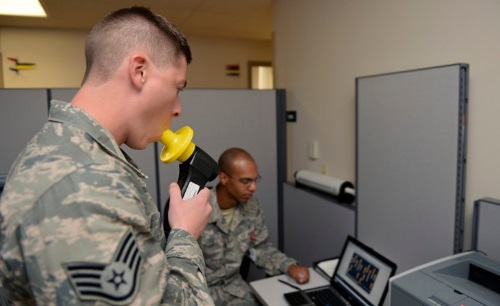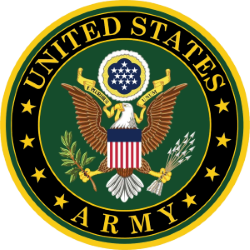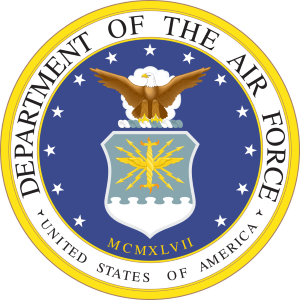Asthma is a chronic lung disease that makes it harder for individuals to move air in and out of their lungs.
One in 13 people have asthma and many times, they are diagnosed in their youth before they have a chance to enter certain career paths.
If you have asthma and are thinking about joining one of the military branches, here is the information you need to know.
So can you join the military with Asthma?
In almost all cases, if you currently have asthma you will not be able to join the Army, Navy, Air Force, Marines, or Coast Guard. If you have or were diagnosed with Asthma after the age of 13, you may still be able to enlist with a waiver. Before you officially enlist in any of the military branches, you will undergo what is known as a Pulmonary Function Test, or PFT. This test will determine the extent of your asthma, and whether or not it’s a disqualifying condition.
If you’d like to see the specific asthma policy for each military branch, read more below.
Jump To A Branch
Navy’s Policy On Asthma In 2023

OMK spoke with Officer Mendoza, a Navy recruiter stationed in Atlanta, Georgia, about the Navy’s policy on Asthma.
Here’s what he had to say:
It’s definitely possible to get into the Navy if you were previously diagnosed, but it can be very difficult. For starters, if you currently have asthma, it’s not going to work out.
Related Article: Can You Join The Military With That? 20 Potential Medical Disqualifiers
The military has a very strict policy on this; if you are currently being treated for asthma, then you will not be able to serve.
In addition, any history of Asthma after the age of 13 will require a waiver.
The waiver process will happen at your Military Entrance Processing Station, or MEPS.
Before enlisting, you’ll be required to perform what’s known as a pulmonary function test, or PFT.

A PFT is essentially a noninvasive test that shows how well your lungs work. (Source)
If you can pass this test, you can join the Navy.
What about if you’re currently serving?
According to Recruiter Mendoza, if it’s discovered that you have Asthma while you’re serving, you’ll be discharged.
With that said, we had someone contact us and said that this is not necessarily true.
Check out what he had to say below:
“I would like to speak on the Navy discharging you for being diagnosed with asthma while currently serving: this just simply isn’t true.
I have been enlisted for 10 years, and am looking to 20+ years of enlistment at this point.
I was officially diagnosed earlier this year with asthma, and no talk of discharge was ever brought up, except when I stated that I do not want this diagnosis to be one that would cause me to be discharged from service.
I am being treated with a single daily pill, and an inhaler to use before physical exercise and also on an as-needed basis.
I will not be discharged for being diagnosed with asthma.”
– DBoydstun, comment left on Aug 1, 2019
The biggest concerns would be for anyone thinking about becoming a Naval Aviator (pilot), Submariner, Diver, or Firefighter.
Related Article: Which Branch Of The Military Should I Join? 7 Things To Consider
The Navy’s policy is pretty straightforward on this as well; Any history of asthma (at any age, even before 13), including childhood asthma and exercise-induced asthma, is considered disqualifying for aviation duties and training.
This includes even very mild asthma.
For all other rates (jobs), the recruit will perform a series of physical tests at MEPS.
If the doctor suspects asthma, then you’ll be referred to a specialist.
According to the Navy website, you can request a waiver if you have asthma.
Army’s Asthma Policy For 2023

Things aren’t much easier if you’re considering joining the Army.
Just like with the Navy, if you currently are being treated for asthma, it’s grounds for immediate disqualification from Army service.
However, if you haven’t had any Asthma symptoms past the age of 13, you’re good to go.
If you have had Asthma past the age of 13, but do not currently have Asthma, you can still get in with a waiver, according to the Army’s recruitment requirements page.
The waiver process is similar to that of the Navy and requires you to take a Pulmonary Function Test.
In addition, your complete medical history regarding your Asthma will be examined, as well as your current condition.
OMK spoke with Sergeant Hewitt, an Army recruiter stationed out of Atlanta, GA, to get a more concrete answer on what would happen if you were diagnosed with Asthma while serving.
Here’s what he had to say:
If you develop Asthma while serving in the Army, the soldier will be sent to the doctor for a full checkup.
A PFT will be conducted, and the doctor would make a recommendation to the Army as to your status.
Note that the Department of Defense policy, updated in June 2022, states that asthma symptoms that persist despite appropriate treatment may lead to separation. However, they also have to keep you from participating in physical fitness training and testing.
Air Force Asthma Policy for 2023

OMK spoke directly with recruiter Staff Sergeant Socha, an Air Force recruiter stationed in Staunton, Virginia.
Here’s what he had to say regarding the Air Forces’ asthma policy:
“With the Air Force, asthma is disqualifying if the service person carries an inhaler.
If they had childhood asthma but currently do not carry an inhaler it is possible to join the Air Force.
Before joining the Air Force, the potential candidate would take a Pulmonary Function Test (PFT) and methacholine challenge test (MCT).
Keep in mind though that, in the Air Force, there would be specific jobs where asthma would be an issue.”
If you are diagnosed with asthma after going active-duty Air Force, you should note that USAF follows the DoD medical standards for retention.
The overall policy is to ensure that the Airman can function in their job with standard treatment before separation is even considered.
Marine Corps Asthma Policy for 2023

OMK spoke with Captain Sabia, a Marine Corps recruiter stationed in Norcross, Georgia.
Here’s what he had to say regarding the Marine Corps policy on asthma:
“With the Marines, one needs to take a pulmonary function test.
The potential recruit goes see a Navy medical doctor, then the medical board. There are specific jobs one cannot do if they have asthma.”
Coast Guard Asthma Policy for 2023

OMK spoke with Petty Officer Devoir, a Coast Guard recruiter stationed in Sandy Springs, Georgia.
Here’s what he had to say regarding the Coast Guards policy on asthma:
“With the Coast Guard, if you’re taking any asthma medications, it is a disqualifier.
In the Coast Guard, the service person must have spirometer test, and the recruit must get a doctor’s consultation.
The recruit will not be able to do strenuous jobs.”
We’ll update the Coast Guard asthma policy regularly to reflect any changes.
Medical Exams And Records
When enlisting in any branch of the military, there is a point when you are required to undergo a medical examination as well as a medical record review conducted by subject matter experts.
As a part of your initial application, you are required to declare any medical deficiencies and release related documentation showing the extent of the disorder.
Previously, Asthma was an automatically disqualifying factor when joining the military.
This means that it was not a factor that could be waived and no matter what, you could not get in.
With the competition of benefits and pay in the civilian job market and ever-changing politics, branches like the Air Force and Navy decided to find ways to let more people in and essentially raise their numbers.
Related Article: Can You Join The Military With A DUI?
Military Restructuring
One of the main ways they could still allow good people to join the ranks was by reevaluating the medical disqualifying factors.
Essentially, conditions like ADHD, Asthma, and flat feet were something that individuals had no control over.
As part of the 2014 evaluation of the Armed Forces’ medical enlistment standards, they implemented a policy that allowed one to enter the military with asthma as long as they were not diagnosed with the condition.
This decision was made after reviewing and observing how the disorder would affect a service member in training as well as the highly active lifestyle they are required to live.
The change was made with other medical factors that barred many people from joining the Armed Forces.
Asthma Broken Down
Asthma is essentially a disorder in which a person experiences trouble breathing due to the inside of airways that carry air in and out of the lungs. (Source: Lung.org)
The inside of the airways become sensitive to many different stimuli and close, which causes you to wheeze and cough.

There are some things that can cause Asthma such as allergies, environmental factors, and genetics. This is the reason why some people that have asthma get really sick in the springtime when pollen is in the air.
They are experiencing an allergic reaction to the pollen that causes their airways to close. In light of environments, really dry areas such as the desert where many people are deployed may cause individuals to experience major problems breathing.
Lastly, you may get asthma through genetics. Some people are in situations where all of their families experience asthma, and there is nothing that can be done other than treatments after diagnosis.
The common triggers for asthma are actually things that are found often in military environments.
Dust, smoke, exhaust, and industrial emissions are all found in military environments. On top of the allergens in the average military environment, exercise and fear can also trigger an asthma attack.
There is currently no cure for Asthma.
Moving Forward With Asthma
As a safety measure, members that are allowed in under the new policy for enlisting with Asthma are not allowed to take on combat jobs or jobs that would require them to be subject to respiratory issues.
There are many jobs in the military in which you are not required to be out in the elements.
Some of the jobs may be in the information technology fields, medical fields, and administrative fields.
This allows members with medical issues to still serve their country while keeping their physical health in order.
The Armed Forces previously restricted entering due to Asthma because of the requirements of the training environment in relation to fitness and physical health.
Also, some jobs in the Armed Forces require members to be deployed in areas where the environment may not be conducive to breathing issues.
Moreover, in order to treat Asthma, individuals may be required to take medication or carry around a steroid inhaler, which may not always be available to them.
Applicants that have been diagnosed and experience asthmatic issues after they turn 13 can still attempt to enlist as long as they have all of their medical documentation, are in good cardiovascular shape, and possibly be subject to a pulmonary function test or methacholine challenge test in order for a waiver to be considered.
Once accepted in the military, the asthma condition can be better treated with free healthcare for service members.
This is the same for an individual who entered the military and did not have asthma but later was diagnosed with it.
Their condition is treated with the proper medications and they are normally not required to leave the Armed Forces depending on the extent of their condition.
Conclusion
When deciding to join the military many people assume that anyone can get in.
Related Article: Top 20 Reasons To Join The Military (And 7 Reasons NOT To)
While the Armed Forces are extremely selective in some cases, there have been changes in policy that are allowing more medical disorders to be waivered thus opening more doors for individuals with a medical history.
While the military wants higher enlistment numbers, the policymakers have to ensure they are letting the right people in and maintaining the same quality of force.
When evaluating practices and disqualifying factors, medical issues are in some situations easier to get approved versus financial or criminal issues.
Also, financial and criminal factors are the result of something the individual did versus medical issues that can result from genetics or the environment over which the applicant had no control.
If you or someone you know wants to enlist in the Armed Forces and were denied before 2014 due to asthma-related issues, you should try again in the now more informed enlistment situation.
- Ikon Pass Military Discount: Learn How To Save Big - January 31, 2025
- RTIC Military Discount: Find Out How To Save Big on Gear - January 30, 2025
- Traeger Military Discount: Learn How To Save Big on Smokers - January 28, 2025






Hey Lorenzo,
I hear you man, but we have to go by what the official literature says. Not only do we double and triple check / cross reference our sources, but we even go through the trouble of contacting recruiters in each branch of the military and get the official policy straight out of their mouths.
Rob V.
OMK founder
If you had asthma before 13 — 80% chance all branches will say no. If you had an episode after 13 where you needed an inhaler or have any documentation on it…99% it’s a no.